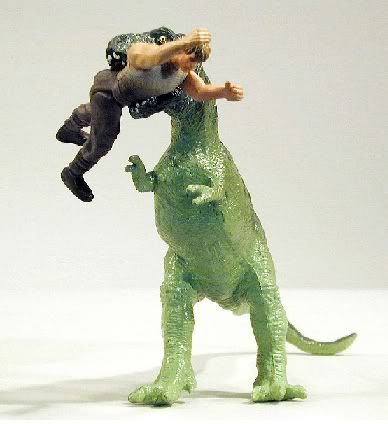
Since I was in grade school, I have been instructed in a picture of life on this planet that started with simple life and moved on to the amazing diversity of life today. I remember watching a school film some years ago that followed this pattern. We were told, "Life started with only a few molecules, shocked into life in a fertile soup of millions of years ago (don't mind the rhetoric), which painstakingly preserved untold positive additions to the DNA blueprint over aeons that ultimately resulted in everything from jellyfish to man. Wow! What a story. Not only that, but some of each step in the "tree of life" have been buried and preserved in rocks corresponding to their age.
Not only this, but many people have seen something like the following geological scheme:

Tables like these list ages of the earth, based on organisms found in each layer of the earth, and draw conclusions about the age of rock layers based on them, as well as using radiometric dating to determine rock ages (the last being the subject of a future post). These have been powerful arguments to my mind, in favor of an old earth.
However, I later found out these tables are far from the whole picture. Often, older life is found on top of younger life (though scientists reject these as exceptions as the result of upheaval of old rocks).
So illustrated (with higher numbers equal to younger life the traditional picture of rock layers and life looks like this:
10
9
8
etc.
....while the newer pictures look like this
10
9
8
etc.
or
10
6
8
or
7
10
6
Not only the disorder, but sometimes, layers are missing completely, and in hardly any place does anything resembling what should be a sequence from 10 down to 1 occur neatly.These days, the old story of orderly deposition of old life to new is not what science is finding.
Also, and against the steady re-telling of the old story, there has emerged a large scientific consensus that life has been an explosive affair--not only involving those first Frankenstein bacteria. The following link leads to an article detailing at least one of these explosions:
http://www.thedesignoflife.net/blog/The-Avalon-explosion-The-dawn-of-life-reveals-another-intricate-puzzle/View/Default.aspx
So Darwin, though worshiped by Stephen J. Gould and Richard Dawkins as the fountain of all knowledge on biological life has undergone some revision. The new scheme shows multiple bursts of complex life appearing in earth's history, and amazingly, disappearing in many cases just as suddenly.
So the timetable of life is fraught with conflict in the scientific community. Now we ask, what does all this have to do with the age of the earth?
Well, a great mystery, in addition to that just mentioned, is the phenomenon of petrified trees. These trees were buried and replaced by minerals over time, but here's the kicker--they where buried standing up! They go through multiple rock layers and multiple ages of rock.

Scientists say they might have been completely buried, the surrounding rock worn away, and then reburied, layer by layer, but this seems to beg the question a bit. Why should that be the case? Could it be, that layers don't equal times in earth's history? And if so...how do we know how old everything is with certainty?



